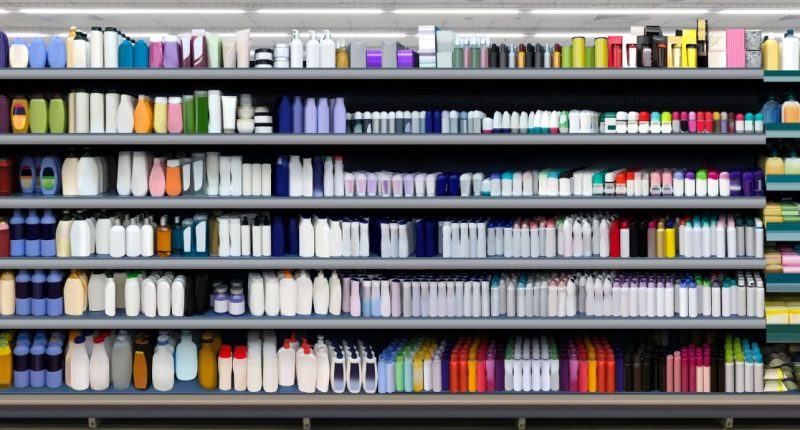The scale of drug shortages has been described as “beyond critical” by pharmacists who say it could lead to serious consequences for some patients.
Community Pharmacy England (CPE) has published a report revealing the extent of the problem, detailing how delays have prevented some people from receiving potentially life-saving medicines in a timely manner.
They have warned that more and more pharmacists are having to issue ‘owings’ to people, which is when only some of the prescription can be issued with the remainder supplied at a later date.
CPE, which represents England’s 10,500 community pharmacies, carried out a survey of owners of 6,100 pharmacy premises and 2,000 of their staff.
- Scientists develop experimental type 1 diabetes drug which shields insulin-making cells from immune system attack
- Insulin sensitivity benefits of medication used to treat type 2 diabetes and obesity
- Body temperature regulation affected by some chronic disease medications
A key finding was that 79% of pharmacy staff reported that medicine shortages were putting patient health at risk.
In addition, 91% of pharmacy owners had seen a “significant increase” in the drug shortages since last year, while 99% of pharmacy workers reported a drug was unavailable at least weekly.
Janet Morrison, CPE’s chief executive, said: “The medicine supply challenges being faced by community pharmacies and their patients are beyond critical.
“Patients with a wide range of clinical and therapeutic needs are being affected on a daily basis and this is going far beyond inconvenience, leading to frustration, anxiety and affecting their health.
“For some patients not having access to the medicines they need could lead to very serious consequences, even leaving them needing to visit A&E. Medicines shortages are leading to delays in patients being able to access certain critical or potentially life-saving medicines in a timely manner.”
James Davies, the Royal Pharmaceutical Society’s director for England, said drug manufacturers, wholesalers and suppliers needed to work more closely with the NHS to ensure a more stable supply of medicines.
He said: “Medicines shortages are disrupting treatment for some patients and destabilising their health.”
Vital drugs used to treat type 2 diabetes, ADHD and epilepsy have been in short supply in recent months, while last year saw a shortage of HRT, adrenalines and antibiotics.
Pharmacists have reported receiving abuse from some patients due to the growing problem.
- Diet adjustments more effective at treating IBS than medication
- Five apps recommended by NICE to improve access to weight loss medicine
- Woman develops life-threatening condition after taking weight loss drug for just three weeks
While experts blame the problem on global supply and manufacturing problems, Janet Morrison said that low prices of medicines has made the UK “a less attractive market for manufacturers and this is contributing to the reduction in supply chain resilience”.
Drug shortages have become the “new normal” according to the Nuffield Trust thinktank, which also said the issue has been made worse by Brexit.
Mark Dayan, Nuffield Trust’s Brexit programme lead, said: “Nearly every available indicator shows that since 2021 we have experienced a once unthinkable level of medicines shortages again and again. The crisis jumps between products and conditions, with no sign of slowing down.
“Brexit creates some extra obstacles for the UK because our market is now partly separated from the wider European pool of supplies.”





